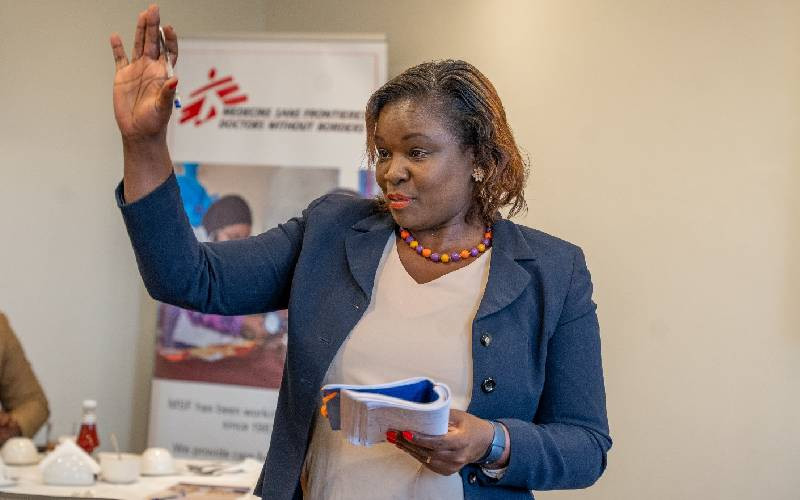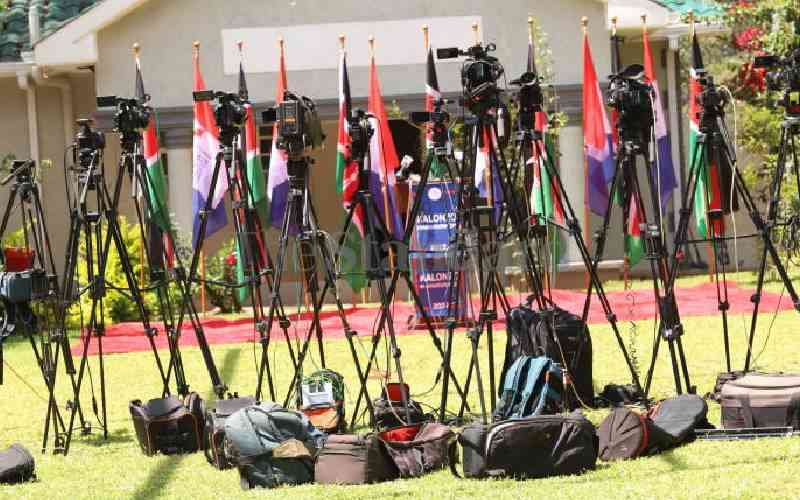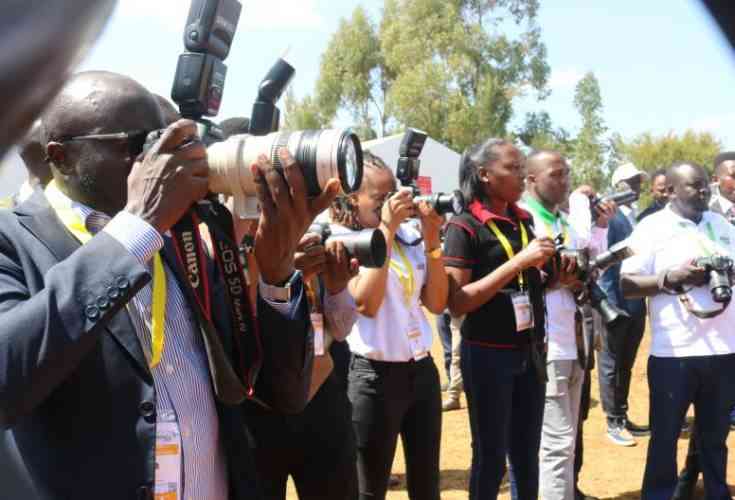By DAVID OHITO
Media stakeholders are worried after learning that sections of the Media Bill 2013 that guarantee self-regulation of the press have been deleted from the original draft.
The shocking revelations in the Bill, published on the Commission for Implementation of the Constitution’s (CIC’s) website, fail to meet Constitutional thresholds that guarantee freedom of expression and the media.
President Uhuru is due to meet editors from Kenya’s media houses at State House Friday morning, amid concerns of plans afoot to muzzle the press.
The proposed laws come after the media was kicked out of the National Assembly Media Centre and is on a collision course with MPs over the coverage of their increased salaries and allowances.
The Media Bill was published only a day after The Standard exclusively revealed how draft laws to amend the Information and Communication Act would censor the media during states of emergency as government seeks to control and regulate content.
The drafters at Attorney General Prof Githu Muigai’s office conveniently shelved sections, including the input of stakeholder consultations.
Article 34 of the Constitution spells out that freedom and independence of electronic, print and all other types of media is guaranteed, and expressly bars the State from exercising control over or interfering with any person engaged in broadcasting, the production or circulation of nay publication or the dissemination of information by any medium.
The laws regulating and aligning media are expected in Parliament any time before the National Assembly proceeds on recess on August 2. The Sixth Schedule of the Constitution expects laws relating to media freedom and freedom of expression to have been enacted by August 27.
The laws, through an Act of Parliament, are supposed to underpin the right to freedom of expression and freedom of the media, and the establishment of the Media Council of Kenya. The latter is supposed to be an independent body free of control by government, political or commercial interests.It is charged with setting media standards and regulating and monitoring compliance with the same, and to oversee the conduct and discipline of journalists and the media.
Yesterday, Dr Haroun Mwangi the chief executive officer and secretary to the Media Council of Kenya (MCK), expressed reservations that the input of stakeholders as generated in consultative forums was ignored by the drafters, a development he described as sinister.
Self-regulation
Mwangi, in a letter to MCK members that was copied to the media, said: “The members of the council are appointed by the Cabinet Secretary for the time being in charge of the Ministry of Information Communication and Technology. Furthermore, the procedure of appointment greatly departs from the proposals of the Media Council of Kenya and the spirit of self-regulation.
The Cabinet Secretary wants to centralise power and he can even reject appointees and nominees of the Media Council. How then can the council remain independent of government?” Also shocking in the Bill is how the complaints committee has been outlawed, yet it is the core mandate of the Media Council that deals with aggrieved parties and regulates the conduct of journalists and content standards.
The complaints committee, as envisaged, would allow the media and the aggrieved persons seek arbitration as opposed to litigation. The MCK also took issue with the outlawing the accreditation of journalists, a move that would open floodgates for quacks to thrive in the industry.
Stay informed. Subscribe to our newsletter
During stakeholder consultations, issues of training and standardisation of curriculum in media colleges was proposed, but the same have been expunged from the Bill for reasons not made clear by the drafters.
Mwangi argued that the fact that Media Council is expected to be independent of the government means the Cabinet Secretary should not have a central role on who sits on the board. The storm over the attempt reverse gains made in the media came to the fore when drafters, led by Prof Patricia Kameri-Mbote published a draft seeking to assign powers to the Communications Commission of Kenya or its successor to monitor and regulate content in total contravention of the Constitution.
Prof Kameri-Mbote’s working group was expected to publish and submit its final draft to Information Cabinet Secretary Dr Fred Matiang’i yesterday, but by press time it was not public.
Another worrying issue raised by Article 19 director Henry Maina is the omission of transitional clauses to deal with the current cases pitting media against influential individuals, including President Uhuru Kenyatta against The Star newspaper and former Head of Civil Service Francis Muthaura against The Standard Group. “What would become of the fate of these individuals and their complaints if we do not transit the cases currently being handled by council?” Maina asked.
 The Standard Group Plc is a
multi-media organization with investments in media platforms spanning newspaper
print operations, television, radio broadcasting, digital and online services. The
Standard Group is recognized as a leading multi-media house in Kenya with a key
influence in matters of national and international interest.
The Standard Group Plc is a
multi-media organization with investments in media platforms spanning newspaper
print operations, television, radio broadcasting, digital and online services. The
Standard Group is recognized as a leading multi-media house in Kenya with a key
influence in matters of national and international interest.
 The Standard Group Plc is a
multi-media organization with investments in media platforms spanning newspaper
print operations, television, radio broadcasting, digital and online services. The
Standard Group is recognized as a leading multi-media house in Kenya with a key
influence in matters of national and international interest.
The Standard Group Plc is a
multi-media organization with investments in media platforms spanning newspaper
print operations, television, radio broadcasting, digital and online services. The
Standard Group is recognized as a leading multi-media house in Kenya with a key
influence in matters of national and international interest.








